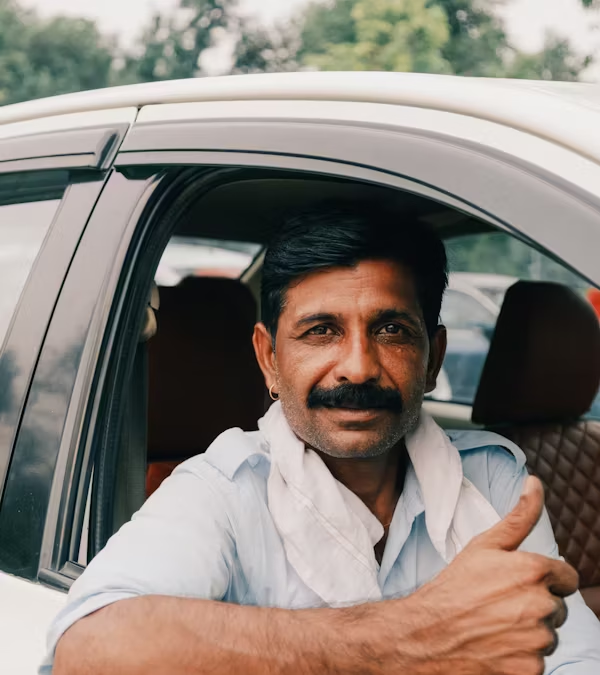According to my teenage son Arvind, I was far from being a ‘cool’ dad. In fact, he often reminded me just how unhip I really was, and it stung more than I cared to admit. For starters, I was a teetotaler and prided myself on being a non-smoker, traits that he seemed to find particularly uncool in our socially vibrant world. To make matters worse, I was hopelessly behind the curve when it came to technology—I couldn’t even navigate the ins and outs of a Facebook account. Arvind had a long list of my shortcomings, and while I could go on about how many ways I fell short in his eyes, I would rather not dwell on that topic for too long.
One ordinary evening, as the sun was setting and casting a warm glow through the window, filling the room with a golden hue, Arvind turned to me with an urgent question that made my heart sink. “Will you be able to find a job for Khem Singh?” he inquired, his face a mix of concern and hope. And just like that, my chest tightened in anxiety; I didn’t even know who Khem Singh was, and I feared that this ignorance would surely lower my standing in my son’s eyes.
I attempted to piece it all together, but the flash of confusion crossed my mind like storm clouds rolling in. “Rahul’s dad got a transfer to London,” Arvind explained, and suddenly, the pieces began to fall into place. “They don’t need Khem Singh’s services anymore. We don’t even have a car, so hiring him isn’t an option for us. Could you perhaps find someone in your office who might need a driver?” Though I could sense the sarcasm in my son’s tone when he spoke about me not owning a vehicle, the revelation that there was a solution to this predicament eased my heart a little, and lingering hope started to breathe within me,
In fact, that very morning, my boss, Mr. Malhotra, had asked if I knew of anyone who could fill the position of a driver. The stars seemed to align perfectly; I was given a golden opportunity to assist my son and make a good impression on my boss. “Send him to my office tomorrow,” I said with newfound confidence. “I’ll make sure he gets a job.” With those words, my chest swelled with a mix of pride and determination.
The following morning arrived, and with it came Khem Singh, a tall yet fragile man who seemed to possess an unassuming grace, easily able to reach for the top of a basketball hoop without breaking a sweat. As he entered my cabin, he bowed deeply and introduced himself. “Sir, I am Khem Singh,” he said, his voice steady yet laced with an underlying nervousness. “I can drive any car and have eighteen years of experience. Do you know anyone who needs a driver? Rahul Baba asked me to come and see you.”
“My boss, Mr. Malhotra, is looking for a driver,” I replied, and was rewarded with an instant and infectious smile that lit up his entire face. “Please head to Mr. Malhotra’s cabin; he’ll want to speak with you,” I instructed, feeling a surge of optimism.
Approximately ten minutes later, Khem Singh returned to my office, and his demeanor transformed from hopeful enthusiasm to anxiety-laden uncertainty. “Mr. Malhotra wants to verify my credentials first as a driver. He’s asked me to come back around five o’clock this evening to take him home,” he breathed, visibly tense. “It seems he’s summoning a couple of other candidates as well.” His sunken eyes shimmered, holding back tears that threatened to spill over.
“Sir, I desperately need this job,” he implored, glancing down for a brief moment before continuing with an unmistakable earnestness. “My elder son is in the 12th standard and aspires to pursue engineering. He doesn’t want to be a driver like me.” Khem Singh shook his head vehemently, emphasizing his aspiration for a better future for his son.
“Don’t worry; Mr. Malhotra will hire you,” I insisted, though the uncertainty in my voice betrayed my own fears. I wasn’t entirely convinced of that outcome.
“Please, somehow persuade Mr. Malhotra to provide me with this opportunity,” he said, desperation creeping into his voice. “I’ll pay you whatever I can.” His words struck me like a lightning bolt. The poor man believed that bribery might sway my superiors, making me uncomfortable with the ethical implications of his suggestion.
How could I possibly convey to him that my intentions were solely to fulfill the promise I had made to my son? Just as I contemplated my next words, the shrill sound of my phone ringing broke the tension in the air.
“I’m sorry, but I don’t think I’m interested in hiring the man you’ve referred,” Mr. Malhotra’s voice came through the line, his tone final. “I’ve found someone younger.” And just like that, my heart twisted into knots. Here was a man who desperately needed employment, yet age was evidently working against him—a heartbreaking irony.
“Come to my house starting the first of next month,” I said, trying to instill some sense of hope into his grim situation. “I need a driver.”
The relieved smile that swept across his face was like a ray of sunshine cutting through stormy clouds, momentarily banishing the nagging worry about my own financial constraints. In that moment, the burdens of my fiscal limitations melted away, and I realized I had kept the promise I made to my son—a small victory that transformed the feelings of inadequacy into something much more profound.
